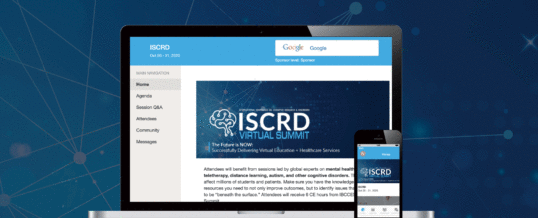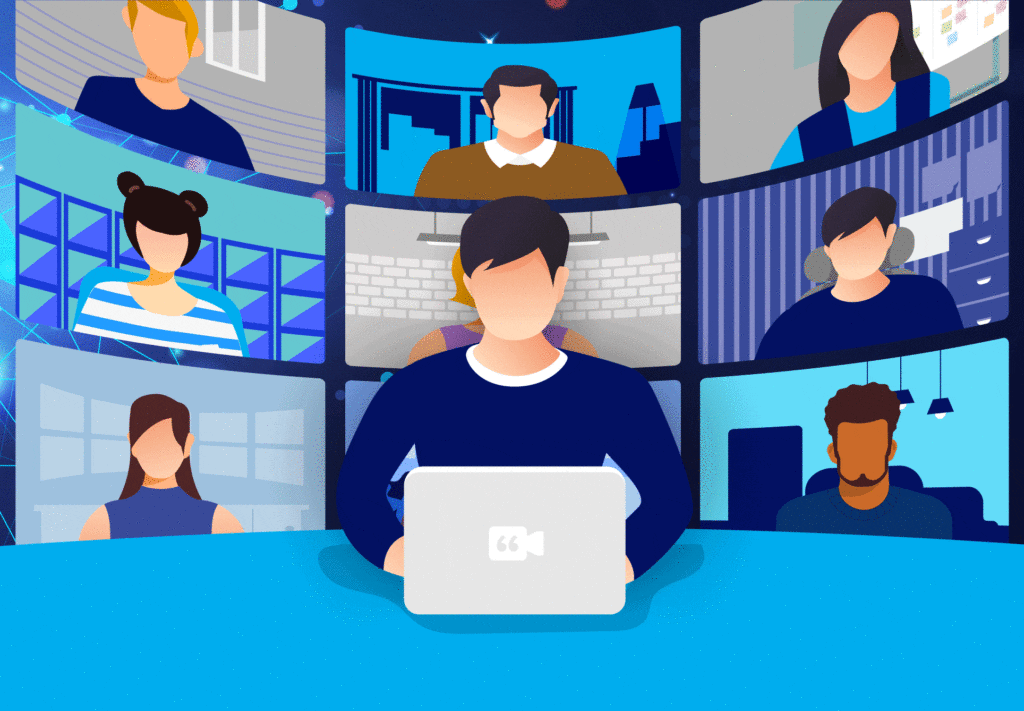
No other conference is focused on how to help you adapt classroom and district needs (virtually or in-person) to the new realities of education like ISCRD Virtual Summit 2020.
We brought together leaders across education and healthcare (speech-language pathology, occupational therapy, and psychology) to light the way on how to adapt to the new landscape confronting education and healthcare professionals alike.
There is now an unprecedented need for quick adjustment in the school system to make sure that general education students and special education students alike continue to progress with their education.
In many cases this will start with simply avoiding regression due to the adverse impacts of COVID-19. This conference is meant to help educators learn how to improve outcomes whether they are teaching in a socially distanced classroom or embracing online elements.
Education Faces Unprecedented Challenges to Achieve the Same Outcomes
Education faces a number of new challenges that have never been seen in our lifetime toward achieving educational goals. Whether it be maintaining test scores, ensuring IEPs are in place and being followed per guidelines, goals that were previously “routine” are all the sudden challenging to many.
General education and special education teachers alike are going to have to adjust more in 2020 then they have in the previous 20 years combined. Along the way they are going to need some help.
Many Students Have Already Fallen Far Behind
With the unplanned ending to the 2019-2020 school year, almost every student’s education was impacted in some way. Most students started doing ‘distance learning’ or some sort of virtual learning at the end of the year, but the quality and impact varied significantly.
The resources available to teachers also varied significantly. There was also very little time for planning or making any sort of adjustments to a format and system that was completely new to many teachers.
Many students saw their education be adversely impacted by all of these changes,m including many districts not able to deliver IEPs and other critical (and required) services and supports. Whether or not the students were able to continually progress was often up to their parents, who may or may not have been home from work to help them. Teachers not only had little to no control over how much help the students received, they didn’t have the proper tools in place to allow them to instruct in a virtual environment.
 Re-Learning to Reach Students with Different Learning Styles
Re-Learning to Reach Students with Different Learning Styles
Whether classes take place in the classroom, virtually, or a mix of both, there are going to be new challenges to ensure that students with different learning styles are properly accommodated.
This conference will go into detail on how to incorporate a variety of learning styles across these different environments to ensure that students of all types get the opportunity to learn. This will help educators to ensure they are not leaving any of their students behind and ensure that they are able to properly fulfill federal, state and local requirements in the times of COVID-19.
 Inclusion in a Physical and Virtual Environment
Inclusion in a Physical and Virtual Environment
Effectively managing inclusive classrooms can be challenging even under normal circumstances. Knowledge is power in this area. Many teachers need more support and training in cognitive disorders such as autism or ADHD, as these disorders when not properly understood or approached often lead to behavioral problems and learning gaps..
Making virtual classrooms inclusive adds another layer of difficulty. The ISCRD 2020 conference will have sessions sharing best practices on how to make sure that virtual classrooms can be inclusive and most importantly, effective, so that all students can thrive.
 Mental Health Increasingly a Concern Among General and Special Education
Mental Health Increasingly a Concern Among General and Special Education
This is another often neglected area that will be looked at in the conference.
With a mental health epidemic that was already showing major increases in anxiety and depression in students even before the pandemic hit, symptoms of anxiety and depression can also be very real disruptors to classrooms that educators have little to no training about.
Learning to recognize the signs of anxiety and depression and other mental health concerns can be a great asset to a teacher. This can help them to manage their classroom better, identify students earlier on who need help, and even help them understand or manage their own stress better.
 Mental Health and Stress of Teachers – An Epidemic in of Itself
Mental Health and Stress of Teachers – An Epidemic in of Itself
Teaching is already one of the most stressful jobs out there, ranking at the top with nursing with 46 percent of teachers reporting high daily stress. With many teachers already reporting high levels of stress before the COVID-19 pandemic, there has never been a time of such rapid change and so many new obstacles in education.
Teachers are now stuck in a middle ground of looking to try and get their students to learn when they don’t know if they will be in school or teaching virtually. Lesson plans that had been well thought out and tested in collaborative environments in the classroom will now need to be adapted in order to either keep students safe or to apply to a virtual environment.
Teachers will now have to do substantial amounts more work just to seemingly stay in place and get their students to achieve the same or similar gains to previous years. Even that is likely unrealistic in many cases.
However, this conference has been made to empower teachers to both recognize signs of stress and mental health issues in themselves as well as to give them the tools to better navigate the complicated challenges moving forward to manage classroom concerns and identify students who need help and get them the assistance they need.
 New Realities in Education: Telepractice, Autism, ADHD and IEPs
New Realities in Education: Telepractice, Autism, ADHD and IEPs
There’s plenty more that this conference covers. Telepractice is going to be a part of the new reality, which brings special challenges for students with autism, ADHD and other cognitive disorders. We have sessions to cover all of these areas to help teachers and administrators know how to approach these areas and ensure positive outcomes.
This is rounded out by a session on how to conduct a virtual IEP meeting. Many IEP meetings will likely be done virtually in the coming year, if they haven’t already. Outbreaks of COVID-19 will hopefully be under control soon, but the experiences so far have already altered the approach of education for the longer term.
Either way it is important to be ready to adjust to virtual learning environments for everything from inclusion classrooms, to special education with people with autism, ADHD and other disabilities and to be able to conduct the IEP process from start to finish virtually when needed.
Children still need to learn and progress, and must do so as documented and required by federal law. The new reality of education is being creative and ensuring educators have the tools they need to be effective in this “new normal”.
It’s Time to Create the Future of Education
Are you going to help create the future of education? While there are unprecedented new changes in education, there’s also opportunity to shape the future of how students will learn.
This transition is likely the hardest time it has ever been to be a teacher or education professional, but this conference is here to help guide you these uncharted waters.
With one full day of sessions and access to content for one month after the conference, educators will be given plenty of time to take advantage and implement the content to change their classroom as well as to interact with other educators and compare notes.
Don’t miss this once in a lifetime conference to work with other educators to shape the world of education and ensure this generation of students gets the opportunities they deserve to succeed.
Interested In Sending a Group to Virtual Conference?
Fill out form below for additional information
AUG
